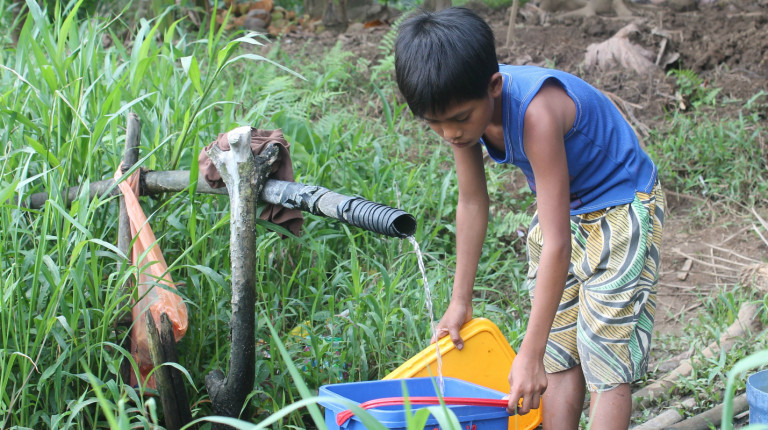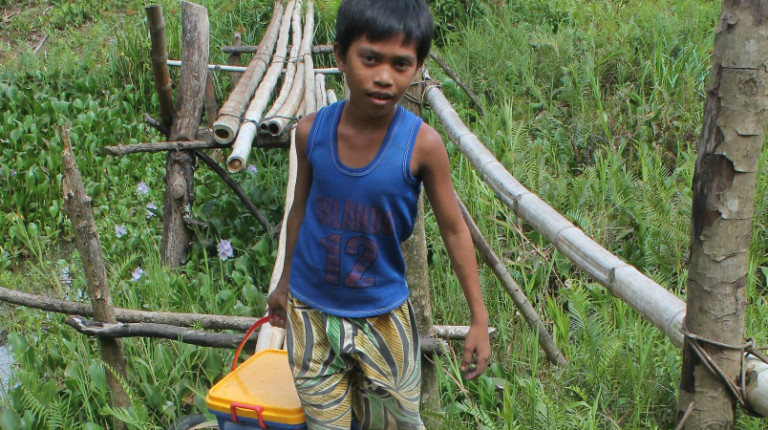Skipping class is not something new for 12-year-old Danilo from Agusan del Sur, Philippines. This, however, is not a reflection of his disinterest to pursue his studies—it is merely an implication of his family’s difficult life.
Danilo’s father does not have a stable job. His family relies on the available crops that they can harvest from their small backyard garden.
“Sometimes I would be absent from school because I have to help my father in the farm, so we can have something to eat. We plant banana, string beans, sweet potato, cassava, karlang (a variety of taro),” Danilo said.
It is difficult for Danilo to get the energy he needs from the root crops his family are relying on. His teacher, Teacher Sweet, has noticed that Danilo struggles to overcome his hunger while he is in school.
“He goes to school, but he is not participating and there are times he feels very weak and uninterested. Sometimes, he leaves the classroom to look for something to eat, like fruit from nearby trees, or he would actually go home because he did not bring any food. In a week, he would be lucky to be able to bring some ground corn for lunch. Because of poverty, his family can only afford corn, banana, or root crops that they themselves plant in their backyard.”
Root crops are relied upon within the community, as they are simple, affordable and able to withstand flooding – a common occurrence for villages in Agusan Del Sur. However, such heavy reliance on root vegetables is putting people at risk of malnourishment.
Save the Children is working to address this challenge by helping families and communities increase and improve their access to food – through backyard gardening, livestock raising and vegetable production. We are also training households to protect their livelihoods and store food effectively, so that during floods or disasters children like Danilo will not go hungry and can remain in school.



